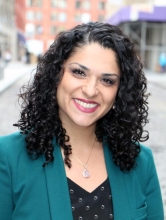
A substantial body of social scientific research attests to inequalities across youth in the United States. This inequality manifests in areas such as educational attainment, academic achievement, health, and involvement in the juvenile justice system, among others. Too often, our research questions emphasize individual that contribute to inequality, rather than focusing on the environments they inhabit.
As an environment in which marginalized youth are overrepresented, the juvenile justice system is a particularly important setting to focus research and intervention to reduce inequality. Intervening in these settings offer a potential means to promote the well-being of vulnerable youth and the staff that work directly with them in order to create a more equitable space for everyone within the system.
Developed in partnership with the NYC Administration for Children’s Services (ACS), SAFE Spaces uses evidence-based principles to provide training and coaching support for frontline staff working in ACS Close to Home (CTH) non-secure and limited-secure placement facilities.
Through unique skills-based staff training activities and guidance from a trained coach, SAFE Spaces aims to increase the professional development, job satisfaction, retention, and well-being in CTH staff who work directly with youth. By focusing on these staff outcomes and the environment in which they work, we also help to promote and encourage a healthier environment for youth’s lives and promote their safety, well-being and positive development. The efficacy of SAFE Spaces is being assessed through a cluster-randomized control trial supported by the National Institutes of Mental Health (NIMH).
Funding
The SAFE Spaces project has received funding from the following sources:
Internal Funding:
- Institute for Human Development and Social Change
- Steinhardt Challenge Grant
- The Office of the Provost’s Mega-Grant Initiative
External Funding:
-
National Institute of Mental Health, Grant # R01MH114937
Co-PIs:
SAFE Spaces: Systems Aligning For Equity
Co-led by Drs. Erin Godfrey, PhD and Shabnam Javdani, PhD, SAFE Spaces (formerly known as Researching Inequality in Settings of Care or RISC) seeks to examine the substantial body of social scientific research that attests to inequalities across youth in the United States.
Learn about SAFE Spaces


